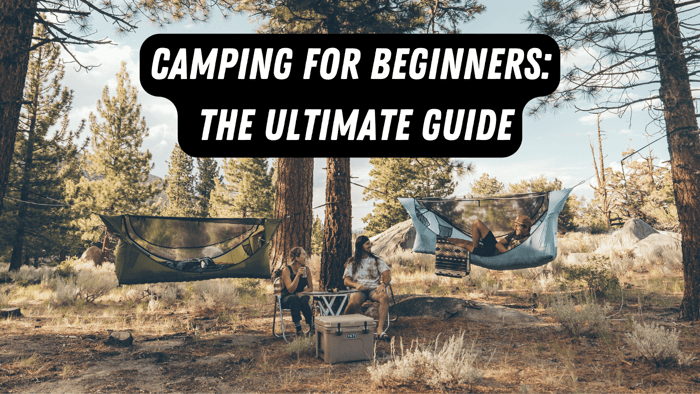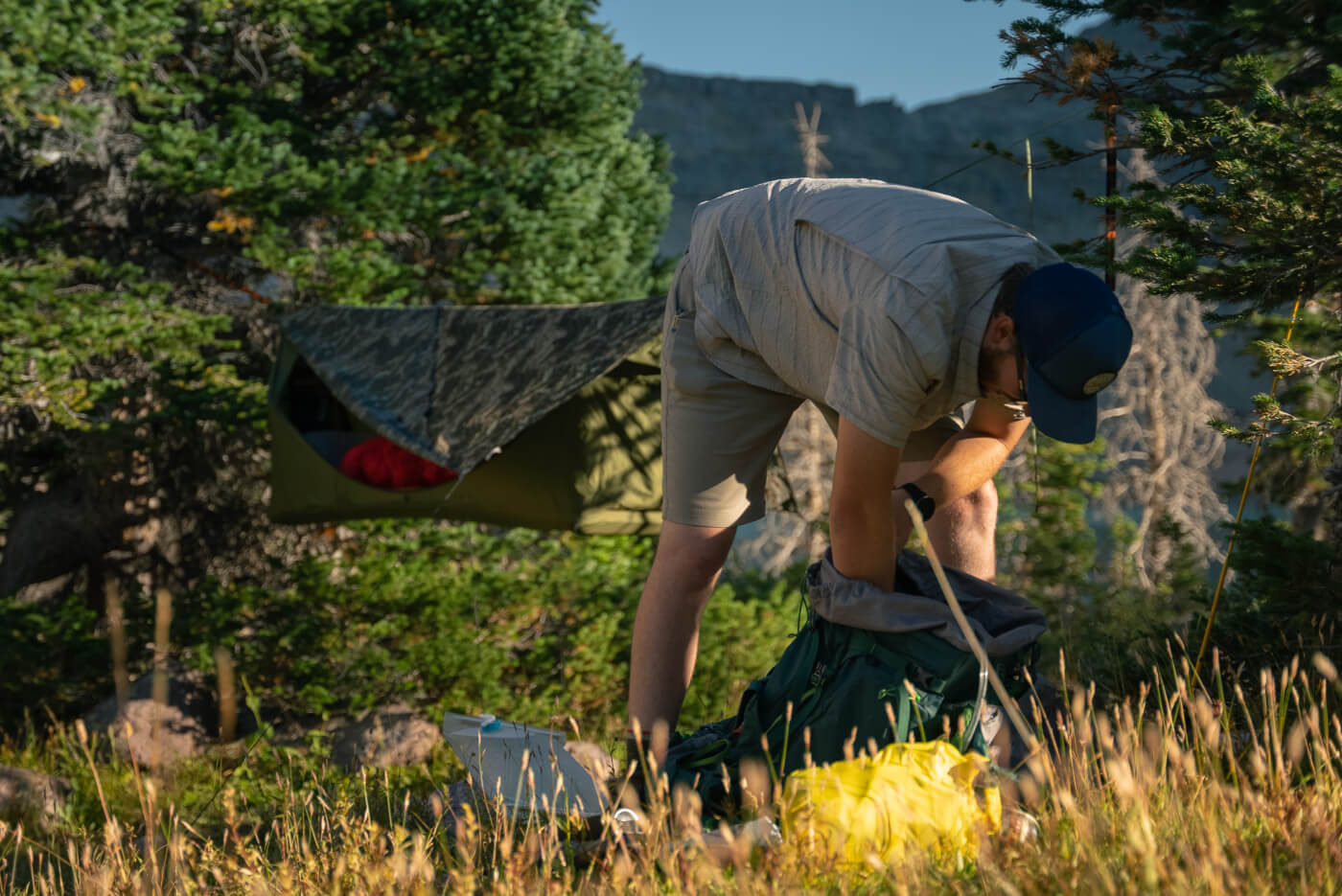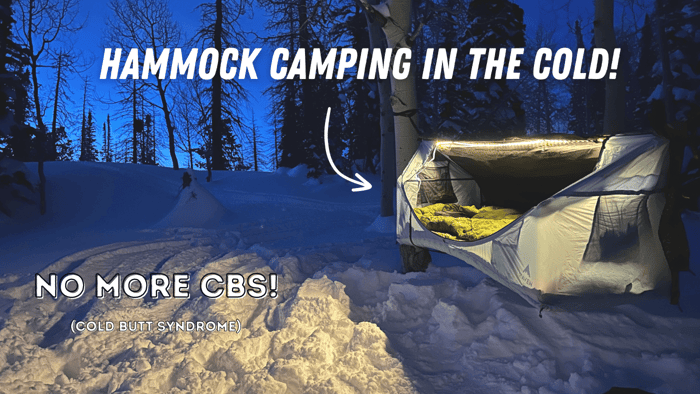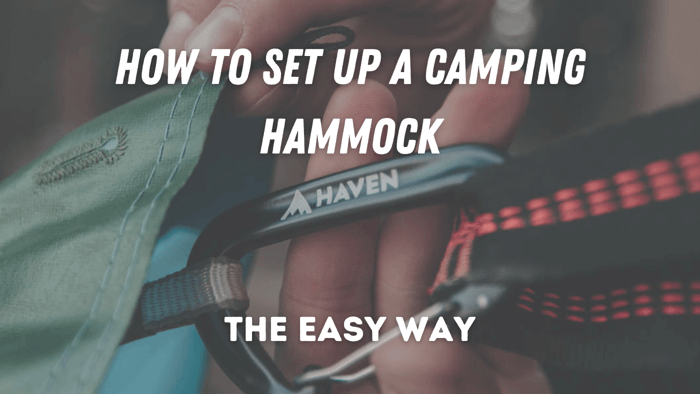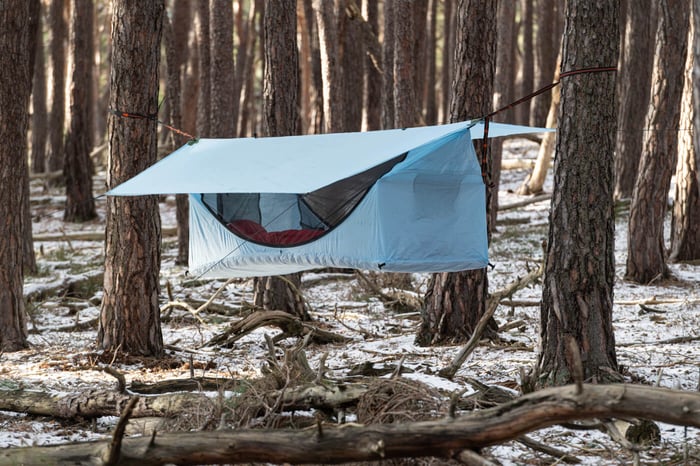"Camping for Beginners". If you typed this into the search bar, we are hoping this is the article that pops up because we made this with you in mind. Embarking on your first camping trip is an exciting step into a world of natural beauty and outdoor living. Whether you're looking to escape the hustle of city life, seeking tranquil solitude, or eager for an adventurous escape, camping offers something for everyone. This ultimate camping guide is designed to help beginners navigate the basics of camping, from selecting the perfect campsite to setting up your Haven Tent for a comfortable night's sleep under the stars.
Section 1: Things to Know Before Going Camping
Embrace the Adventure, Respect the Wilderness
Camping is more than just an activity; it's an experience that invites you to connect with nature on a deep and personal level. To ensure a positive and safe camping experience, there are a few essential things to consider:
- Research Your Destination: Every campsite has its own set of rules, attractions, and potential hazards. Spend time researching your chosen location to understand what to expect and how to prepare. For example, one location may have rules against hanging a hammock in trees. You'll need to come prepared with some trekking poles to setup your Haven Tent on the ground. We'll go into more specifics on gear to bring later on.
- Check the Weather: Weather can make or break your camping trip. Keep an eye on the forecast and be prepared for sudden changes, especially if you're camping in areas known for unpredictable weather. Be sure to take into consideration all aspects of weather -- rain, wind, snow, etc. Even extremely high temperatures can make for an uncomfortable night if you arent prepared.
- Leave No Trace: If you were ever a boy or girl scout, this phrase was probably drilled into you. The principle of leaving no trace is fundamental to responsible camping. Always clean up after yourself, respect wildlife, and leave your campsite as you found it, if not better. The goal is to allow a space for others to enjoy it after you do.
Understanding Camping Locations
Your choice of camping location can dramatically affect your experience. From the calm shores of lakes to the rugged terrain of national parks, each setting offers unique challenges and rewards:
- Campgrounds: Ideal for beginners, established campgrounds often provide amenities like running water, toilets, and fire pits. They are often managed actively by on-site camp hosts who can help with whatever you need. Established campgrounds allow you to drive up directly to your campsite to allow for easy loading/unloading of your gear.
- Backcountry: For a more secluded and immersive experience, backcountry camping requires more preparation and leaves you closer to nature. When you see those pictures of people in surreal landscapes, most of the time, they are taken in the backcountry. These locations often require you to pack your gear in and out.
- State and National Parks: Offering a blend of accessibility and natural beauty, parks are a great option for those looking to explore well-preserved natural areas. These large areas of land are well maintained and offer a hybrid experience of camping that includes amenities as well as backcountry. Many national and state parks require permits to be obtained before embarking so plan ahead.
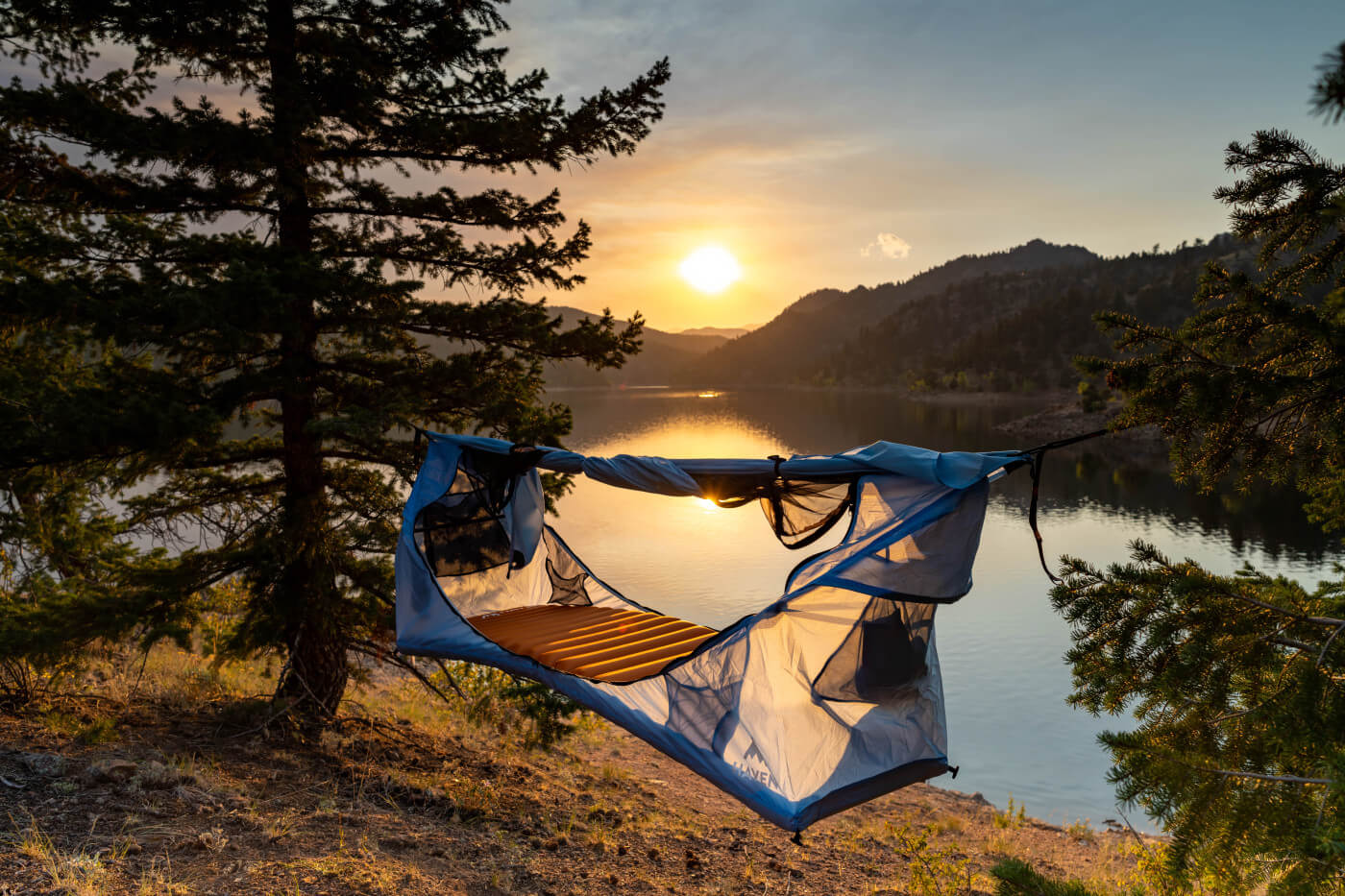
Section 2: Choosing Your Camping Style
Camping comes in various styles, each offering a different way to experience the outdoors:
- Car Camping: Packing your gear in your car and driving to a campsite is an accessible and comfortable option for many, especially families or those who prefer not to carry their gear too far. Car camping allows for an easy getaway and allows you to escape with relatively low amounts of preparation (don't get me wrong, you'll still need to prep) and planning.
- Backpacking: If you're looking for solitude and are willing to carry everything you need on your back, backpacking into more remote areas can be incredibly rewarding. As mentioned previously, most of the pictures you see on social media of people camping in beautiful locations are from these backcountry locations that can only be accessed by packing your gear in.
- Overlanding: Combining camping with off-roading, overlanding is for those who love both driving and the outdoors, taking you to less accessible, more remote areas. These adventures typically require well-equipped vehicles with 4-wheel drive and adequate suspension. If this is your cup-a-tea, make sure you have spare tires and equipment to get you out in a pinch.
Your camping style will influence everything from the gear you need to the locations you can explore. Haven Tents, for instance, are versatile enough to be used in various settings, from a leisurely car camping trip to a more rugged backcountry excursion.
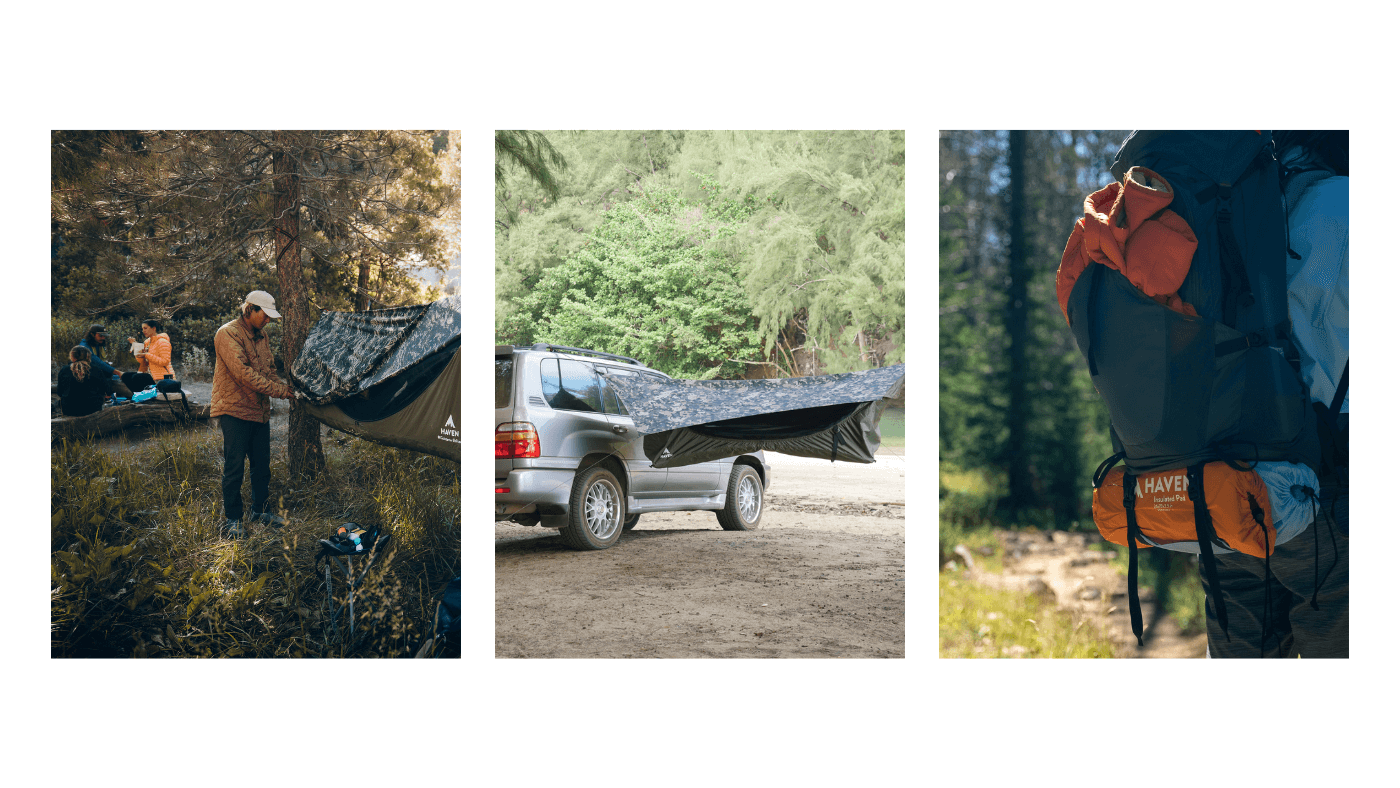
Section 3: Preparing for Your Trip
Good preparation is the foundation of a successful camping trip. Here's a rundown of what you need to consider:
Planning Your Trip
- Destination Research: Know the area you're heading to. Look into permits, wildlife activity, and any restrictions (like fire bans). Be aware of current and future weather conditions in the particular area.
- Campsite Reservations: Popular sites can fill up fast, especially in peak seasons. Book your spot well in advance. Just because you may be going to somewhere that "no one has ever been and probably won't be there", doesn't mean there won't be anyone there. Trust me. I've found myself in this situation and it sure ain't fun.
- Route Planning: If you're backpacking or overlanding, plan your route carefully. Consider distance, terrain, and water sources. Be aware of backup routes in case unforeseen circumstances arise as you are traveling.
Packing List Essentials
A comprehensive packing list ensures you won't forget anything important:
- Shelter: Your Haven Tent (or some other kind of shelter) will be your home away from home, offering a comfortable place to sleep after a day of adventure. Make sure your shelter is waterproof and will hold up in harsh weather conditions. Proper ventilation is also critical to ensure a comfortable sleep and to reduce condensation through the night.
- Sleeping Gear: A sleeping pad, sleeping bag rated for the nighttime temperatures, and a pillow for extra comfort. I personally recommend the ZenBivy bed. It keeps you warm, and allows you to "customize" how you sleep at night.
- Clothing: Pack layers to adapt to changing conditions, including waterproof and insulating layers. Just because it is hot during the day, does not mean that it will stay hot during the evening and into the night. Remember -- you are in the wilderness. Especially if you are in the mountains, weather conditions can change on a dime.
- Cooking Supplies: A portable stove, fuel, lighter/matches, cooking utensils, and enough food for your trip. Make sure you bring pots, pans, cups, plates, and anything else you may need to cook. Youre not going to be in a place where you can easily pick something you forgot up.
- Safety Gear: A first aid kit, map and compass (or GPS if you live in the 21st century), multi-tool, and a headlamp with extra batteries are essentials. You may also want to consider other equipment such as a satellite phone, flares, and emergency blankets just in case you find yourself in any "unsavory" situations.
- Personal Items: Don't forget toiletries (toothbrush especially -- there's nothing better than going to bed with a clean mouth), sunscreen, insect repellent, and any personal medications.
Food and Water
- Meal Planning: Pre-plan your meals to ensure you have enough food. Opt for non-perishable, high-energy foods that are easy to prepare. Protein bars are great for the trail. Freeze-dried foods and MRE's are a backpackers best friend.
- Water Supply: Always have a plan for water. Bring enough for your trip, or if you're sourcing water from the wild, bring a reliable purification method. There are so many out there these days, but each performs differently under different situations. Make sure to do your research.
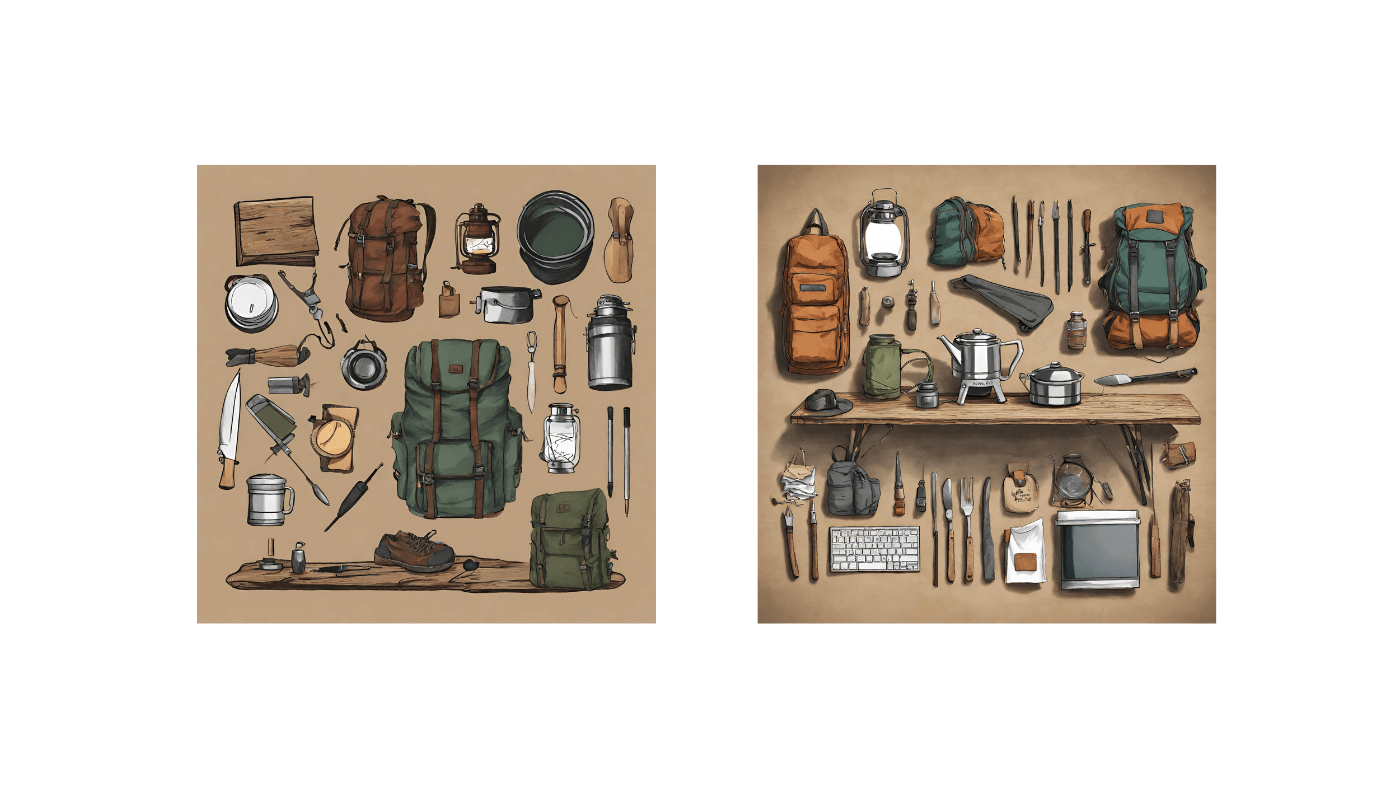
Section 4: Essential Camping Gear
Having the right gear is crucial for a comfortable and safe camping experience. Here's a closer look at what you'll need:
Shelter and Comfort
- Tents/Hammocks: A reliable shelter like the Haven Tent not only ensures a good night's rest but also provides protection from the elements. It acts as an all-in-one system that is perfect for beginners just getting into camping. The kit includes a hammock, sleeping pad, rainfly, and suspension system. If you are not using a Haven Tent, just be aware and do your research of gear that you are going to be using. Again, some systems will be better for some locations and times of the year than others.
- Sleeping System: Pair your shelter with a comfortable sleeping bag and pad. Consider the temperature ratings and the size to ensure a good fit with your tent or hammock. If you are using a hammock, make sure you have an insulated pad, or high-rated under quilt to counteract the cold temperatures that will be hanging out below you.
Cooking and Nutrition
- Stove and Fuel: Although a fire is great, A portable stove is still essential for cooking meals. Be sure to bring enough fuel for your trip. Many stoves are designed to reduce weight and perform better at different altitudes. Be aware of the type of fuel it consumes as well. No use bringing butane to a propane stove party.
- Cookware: Lightweight, durable cookware is best. A pot, pan, and utensils should cover most of your cooking needs. In most outdoor stores, you can pick up some budget-friendly all-in-one mess kits that will reduce the hassle of remembering where you left your fork.
Safety and Navigation
- First Aid Kit: Customize your kit based on the length of your trip and the size of your group. Include personal medications and items for common injuries. Also be sure to include items for more severe injuries. The last thing you want is to bleed out from a small cut just because you didn't have a good bandage.
- Navigation Tools: A map and compass are reliable basics. A GPS device can also be invaluable, especially in remote areas. Most modern GPS's are also equipped with emergency beacons that will alert first-responders to your location if you find yourself in need of some help.
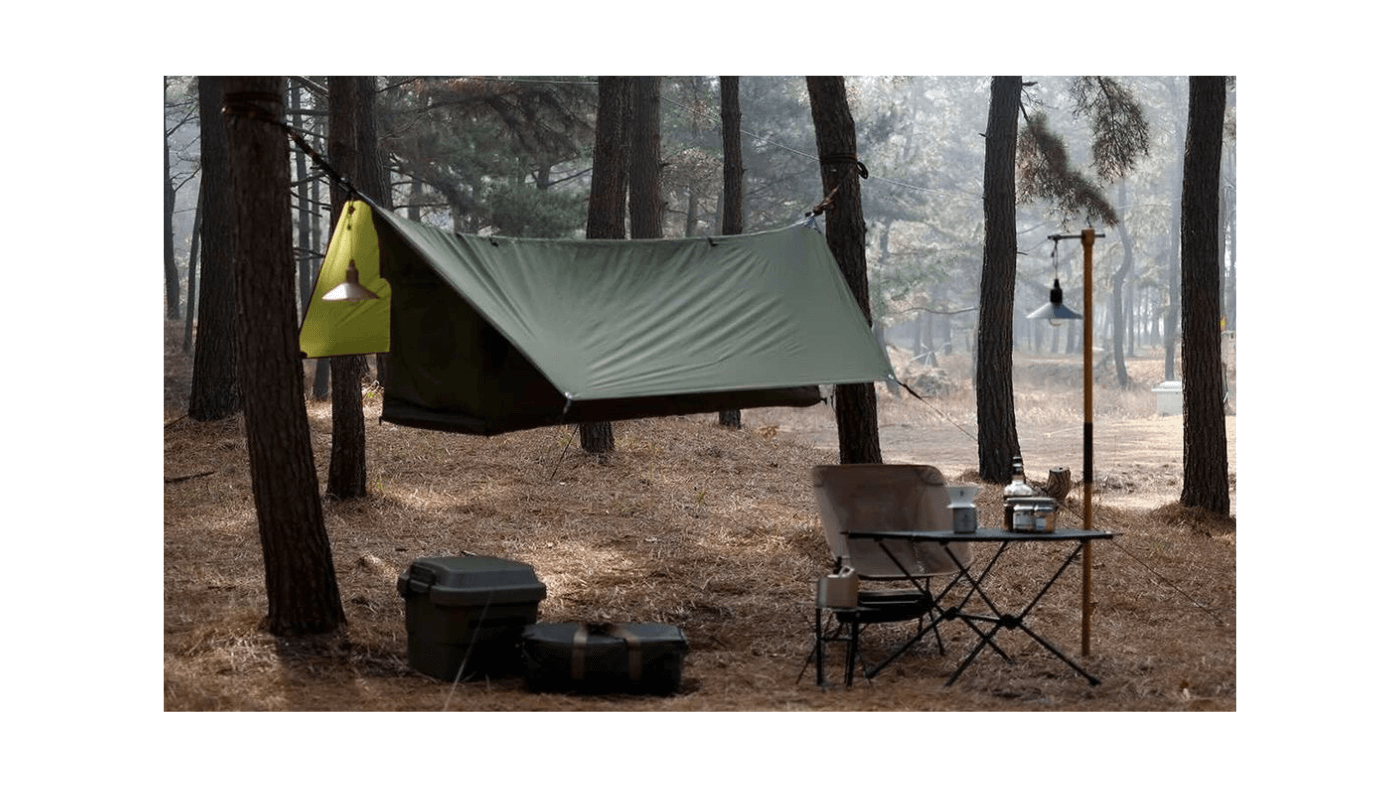
Section 5: Setting Up Camp
Finding the perfect spot and setting up camp is both an art and a science:
Choosing a Campsite
- Ground Conditions: Look for flat, dry ground. Avoid areas under trees with loose branches or near water bodies that could flood. This step becomes less important (though still important) if you are using a system like the Haven Tent. No need to worry about finding flat or dry ground with it since you're not going to be touching it. It also doesn't have to be level because it lays completely flat like your bed at home.
- Exposure: Consider wind exposure and morning light. A spot with natural shelter from the wind can make your stay more comfortable. Be aware of where the sun will rise in the morning to ensure you get the sleep you need. I don't know what it is about the mountains, but the sun always seems to rise earlier than I'm used to.
- Impact: Use existing campsites where possible to minimize your impact on the environment. Remember that even though you may be alone in the woods, it's still the home of wildlife and as such, should be respected. Don't be a home wrecker.
Setting Up Your Haven Tent
We have an entire separate guide for this so I won't bore you with the details here, but take these into consideration anyway:
- Location: Choose a spot that allows for secure anchoring of your Haven Tent. Ensure there's enough space for the hammock to hang without touching the ground.
- Orientation: Consider the direction of the wind and sun. Setting up with the narrow end of the tent facing into the wind can reduce resistance.
- Safety Checks: Once set up, double-check all anchors and suspension systems to ensure they're secure.
Campsite Management
I'll preface this part by saying this: I know you like your snacks, but so do all the animals your sleeping around. Keep all food outside of your tent or you may be awoken by nibbling squirrels or hungry bears.
- Cooking Area: Set up your cooking area downwind from your sleeping area to keep wildlife away from where you sleep. Be aware that critters of all sizes are attracted to your food...probably because we have thumbs and can cook better food than they can. If you can smell it, they can too.
- Waste Management: Plan how you'll manage waste. Pack out all trash, and if you're in a backcountry area, know how to properly dispose of human waste.
Section 6: Safety and Emergency Preparedness
Safety should always be a top priority when camping. Here are some essential tips to keep in mind:
First Aid and Health
- First Aid Training: Knowing basic first aid can be lifesaving. Consider taking a course before your trip. It could save your life, or those who are going with you.
- Health Precautions: Be aware of any potential health hazards in the area, such as poisonous plants or animals, and know how to avoid them. Poison Ivy doesn't feel great. Take it from personal experience.
Wildlife Encounters
- Educate Yourself: Learn about the wildlife in the area and how to safely coexist with them. Store food securely to avoid attracting animals to your campsite.
- Stay Calm: If you encounter wildlife, stay calm and know the recommended safety procedures for the situation. In almost every case, animals are more scared of you than you are of them.
Emergency Situations
- Emergency Plan: Have a plan in case of an emergency. Know the nearest exit routes, emergency contacts, and how to signal for help if needed.
- Emergency Kit: Your kit should include essentials like a whistle, emergency blanket, and signaling device. A GPS is often equipped with emergency functions as well.
- Make sure someone knows where you are going: If you're planning a trip, make sure you tell someone back home where you will be so they know where to look in case you go missing.
In conclusion, stepping into the world of camping opens the door to countless adventures and unforgettable memories in the embrace of nature. Whether you're pitching a Haven Tent under the canopy of towering trees or gazing at the stars from a secluded backcountry hideaway, the key to a successful camping trip lies in preparation, respect for the environment, and a willingness to embrace the simplicity and unpredictability of outdoor living. This camping for beginners guide serves as your starting point, providing you with the knowledge and confidence to embark on your first of many camping journeys. Remember, every seasoned camper was once a beginner, and with each trip, you'll discover not just the beauty of the natural world, but also your own resilience and adaptability. So pack your gear, set your sights on the horizon, and step into the great outdoors—the ultimate adventure awaits.

